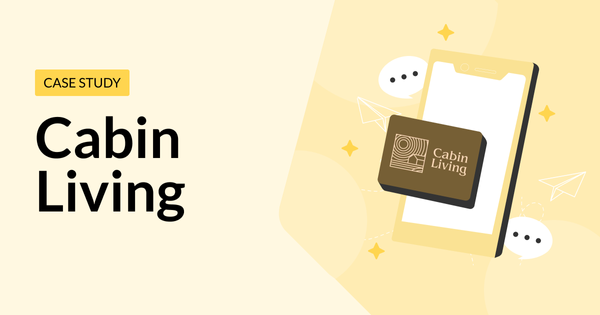How Many Rental Properties to Retire: A Realistic Approach to Building Passive Income

There are many ways to approach passive income in today’s world, but rental properties are one of the best. If not the best.
If you want to generate a retirement income from rental property investments, Airbnb is a very feasible option. Not only is there the potential for great ROI, but you can also choose how hands-on you are in managing and maintaining the rental property. You can be a host, or a real estate investor, or you can utilize a property manager or property management company to fill the role for you.
Whatever rental houses or real estate investing option you choose, one question remains. How many rental properties do you need to own if you want to retire?
Here’s everything you need to know about relying cash on cash return from your rental properties to keep your monthly cash flow in good shape.
How Many Rental Properties Do You Need To Retire?

According to recent studies, the average US citizen needs $1.8 million to retire comfortably at the age of 64. However, the real answer to this question depends on who is asking. Many factors are at play, such as health status, region, living preferences, and how many dependents you have.
Other sources suggest that US retirees need 80 to 90% of their yearly income before quitting work, or 12 times whatever they used to make annually.
Unsurprisingly, the prospect of generating such a high level of cash flow can be daunting for those approaching retirement age, especially in the midst of rising inflation and the economic flux that we’ve faced over the past few years. But this is why owning rental properties make such worthwhile investments— they’re always in demand and can provide consistent passive income.
So, the answer to the question of how many rental properties you need to retire really depends on how much each rental property is worth, how much rental income you can generate, and how much income you desire.
The answer to this question also depends on how much your active income is, i.e., the money you earn directly from your current job as opposed to the passive income you can earn through rental properties. Your spending habits also come into the equation, as they’ll dictate your real estate retirement income requirements in the long term.
When it comes to figuring out how many rental properties you need to retire, there’s a simple rental property retirement formula you can use in rental real estate.
Rental Property Retirement Formula:
- The monthly amount you need for retirement ÷ monthly cash flow per rental property = the number of rental properties you need in order to comfortably retire
- Cash flow = monthly rental income – mortgage and operating expenses
In this rental property retirement formula in real estate, your main source of income is assumed to be rent from tenants. Your list of operating expenses should include things like maintenance costs, vacancies, interest rates, mortgage payment, and property taxes.
You could either invest in multiple smaller rental properties that compound and create multiple rental income streams, or you could invest in just one piece of prime real estate that brings in enough cash flow on its own to subsidize your annual salary and help you prepare for a comfortable, sustainable retirement.
Why Rental Properties Are The Key To Financial Freedom
A rental property is widely considered the most financially advantageous and risk-averse investment type in real estate. Compared to high-risk investments such as cryptocurrency or hedge funds, rental property is a relatively stable market, making it one of the best assets to invest in for long-term wealth generation and, in this case, retirement.
A few rental properties not only provide the owner with the safety net of self-owned housing, but they also create the potential for generating monthly income.
In other words, you can either choose to live in the rental property you invest in or rent it out to tenants for a profit. With the number of rental properties, both property management and rental investments, you save money or you earn it. It’s a win-win either way.

How To Retire With Rental Properties And Build Your Passive Income
Contrary to popular belief, there’s more than one way to cash in on real estate investments. While conventional vacation renting is certainly one way to do it, there are other ways to achieve financial freedom through real estate investing.
If you have already invested in multiple rental properties, you are probably already pretty well set up for consistent income until retirement.
But just in case you aren’t, or you simply want to explore the available options, let’s take a look at the many different ways you can leverage real estate investments to facilitate a stable financial future for yourself and your loved ones.
Tax write-offs
You can generate passive cash flow from investment properties through legal tax write-offs. In fact, depending on the value of your rental property, you can write off as much as $18,000 taxable income (sometimes more) on your rental property. However, you’d likely need a rental property consultant or accountant to help you arrive at an exact figure with respect to how many rental properties that you own and the potential write-offs tax deductions you’re eligible for.
As per US property law, you can own and rent out a piece of real estate that declares a tax loss while generating some positive cash flow on the side, regardless of how much. That way, you can earn money without necessarily spending money on rental property taxes, making this one of the easiest ways to maximize profits on real estate investment outside of renting or selling.
Run a vacation rental business
In 2023, vacation rentals are one of the fastest and most effective ways to earn passive rental income—the kind that can certainly be used to facilitate a comfortable retirement at a regular age.
- Choose the right listing site – The success of your rental income plan starts off with choosing the right platform to advertise and manage it from.
Apps like iGMS offer landlords a wide range of features, including inbox and automated messaging, direct booking management, website building, automation tools, cleaning and team management, payment processing, and guest communication productivity tracking.
- Don’t cut corners – In the beginning phase of setting up a beautiful vacation rental, you may be tempted to pinch pennies to save cash and cut down on your monthly expenses. But in this business, the spots that get the most consistent (and well-paying) attention tend to be the ones with the highest ratings.
You can save money by doing some of the maintenance. But other than that, this is the kind of investment that requires a fair amount of upfront spending that gets repaid sometimes many times over as the years go by. - Hire professionals to manage certain tasks – All rental properties require comprehensive property management and professional input. But that doesn’t mean it has to come from you. Depending on how many rental properties you have, outsourcing rental property maintenance is an option with a property management company. Doing so is a simple yet highly effective way to run a vacation rental business without putting in too much of your own time and effort.
All in all, vacation renting remains one of the best and most financially abundant ways to approach the process of building retirement rental income. It’s also a form of real estate investment that doesn’t require much prior knowledge of property management, especially if you can outsource maintenance.
Rental income
While vacation rentals and rental properties are a great way to earn a consistent passive cash flow if you have a high occupancy rate, conventional rental properties can provide many of the same benefits. Regular rental properties are constantly in demand and can help you bolster your monthly rental income without needing to specialize in their style or seasonality.
The rent you collect on rental properties houses net income from paying tenants can become a massive contributor to monthly income, ensuring your rental property remains utilized and you have net income that can consistently work toward your retirement goals.
Investing in a rental property may require substantial initial investment of capital, but it’s vastly more profitable and more predictable as a source of passive retirement income in the long run. This is ideal for those seeking smart, reliable, and consistent methods of building a retirement fund—and possibly even the chance to retire early.
The Perks Of Passive Income
Even though the prospect of rental property income is arguably most beneficial to retirees or real estate investors who are otherwise physically or mentally unable to work full-time, this is the kind of salary setup that’s advantageous for everyone, regardless of age, career seasonality, or level of labor capability.
This is because passive income empowers real estate investors to either focus more on a job they enjoy that perhaps doesn’t pay well or simply expedite their savings in a way that simply isn’t possible on a single salary. By renting out property on the side, you can significantly stabilize and elevate your financial situation.
Aside from helping you accumulate more wealth, the monthly retirement income that comes with rental cash flow attracts many other significant benefits worth exploring, such as:
Protects you from financial crisis
Unfortunately, emergencies are a fact of life, and some of them have the potential to cause financial devastation. A big injury, economic stagnance, or a worldwide pandemic all have the power to unleash a financial crisis. However, having a form of passive cash flow can prevent them from doing their worst and ensure you can still cover all of your monthly expenses.
While you can’t avoid financial flux altogether, you can certainly prepare for it by boosting your cash flow and diversifying your revenue streams.
Allows for more free time
Time is money, as they say—and when it comes to passive cash flow, you can have both with rental properties. Without the pressure to earn a set active income every month, you can take things easier and indulge in a little more free time to spend however you choose.
Whether that means traveling more, spending time with family, going out into nature, or simply working on personal hobbies, more free time is an excellent perk that comes with passive income.
Can decrease stress and burnout
Financial freedom and stability can significantly contribute to lower stress levels and stronger resistance to both physical and emotional burnout. Money matters are a common source of anxiety, but with that extra stream of low-to-no-effort retirement income, such worries can be alleviated or, at the very least, reduced.
Retirement is supposed to be something that people look forward to. But with the high financial expectations and needs posed by today’s expensive world, it is often associated with dread.
Retirement anxiety affects more than half of the US population, with over 58% of adults admitting that they fear they may outlive their assets. The fear of outliving your assets is a major concern, but with the right rental property investment strategy, those approaching retirement age can relax and look forward to their golden years.
Invest and reinvest in personal business ventures
Having other income streams can also empower you to build upon existing business goals or even start entirely new ones. This is not only an exciting prospect from a career perspective but also a comforting one with regard to looming your retirement expenses. There are plenty of other passive income options you can explore once you have established more cash flow from your rental property portfolio. You can invest in stocks, bonds, or other assets, start an online business, publish an ebook, or follow any other cash flow-generating paths.
Exploring new business ventures is one of the many privileges that come alongside rental property investment. With regular passive income to bolster your monthly and annual earnings, building up a solid retirement fund and supporting yourself well over the age of 64 can become much easier.
Pursue personal hobbies
Having the freedom to pursue personal hobbies is a luxury for most people. And it’s often those with access to more financial resources who can take their passions to the next level.
Hobbies like creative writing, painting, hiking, and even gardening all require ample resources to really pursue, which is why passive income can be such a useful tool for developing new skills. By investing in rental property or several rental properties, you can prepare for retirement while committing to personal dreams and goals simultaneously.

Make Your Rental Property Portfolio Work For You
Retiring with financial freedom is something that most real estate investors dream of. And if you are looking for a safe way to achieve it, knowing how many rental properties a real estate investor will need to retire with is key.
From conventional rental arrangements to vacation rentals and more, earning a passive income is rarely easier or simpler than with a real estate rental arrangement. By real estate investing, you can secure a sturdy retirement future for yourself and your family, providing both peace of mind and the privilege of financial freedom that makes life easier no matter what phase of life you find yourself in.
Enhance Your Retirement Strategy with iGMS!
Determining the number of rental properties needed to retire comfortably is a pivotal decision for many investors. As you chart your path to financial freedom through real estate, iGMS is here to simplify and optimize your property management journey. Our platform offers a suite of tools tailored for hosts and property managers aiming for a hassle-free retirement:
- Channel Manager: Consolidate and manage multiple property listings across various platforms, ensuring consistent occupancy and revenue streams.
- Automated Messaging: Maintain stellar guest communication without the daily grind, ensuring positive reviews and repeat bookings.
- Airbnb Automation: Streamline your Airbnb operations, reducing the time and effort required for each property.
- Cleaning Management: Organize and schedule cleaning tasks, ensuring each property remains in pristine condition for guests.
- Direct Booking Management Toolset: Facilitate and manage direct bookings, maximizing your profit margins.
- Payment Processing: Ensure smooth and timely financial transactions, aiding in consistent cash flow.
As you plan for retirement through rental properties, let iGMS be your trusted partner in achieving your goals. Dive into our features and set the foundation for a prosperous and relaxed retirement!
About the Author
Lauren Prentiss writes about finance, real estate and wealth management. Her words breathe life into numbers and make complex topics clear and engaging. Outside of writing she enjoys photography and bouldering.






